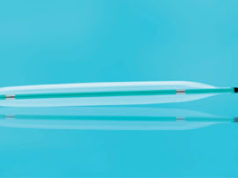 Biotronik has announced the enrolment of the first patient in the BIOMAG-II trial aiming to evaluate the safety and clinical performance of its new-generation resorbable magnesium scaffold (RMS), Freesolve, compared to a contemporary drug-eluting stent (DES).
Biotronik has announced the enrolment of the first patient in the BIOMAG-II trial aiming to evaluate the safety and clinical performance of its new-generation resorbable magnesium scaffold (RMS), Freesolve, compared to a contemporary drug-eluting stent (DES).
“We are delighted to enroll the first patient in the BIOMAG-II trial, which may play a critical role in helping establish resorbable metallic scaffolds as part of clinical practice in the future and I am particularly encouraged by the implantation results of the Freesolve resorbable magnesium scaffold,” said Juan F Iglesias (University Hospital Geneva, Geneva, Switzerland). “Resorbable scaffolds have shown potential in reducing long-term adverse events compared to DES, marking a significant advancement in vascular intervention. We finally have a scaffold that delivers on its promise.”
The BIOMAG-II trial is a prospective, international multicentre randomised-controlled study spanning 21 countries across Europe and the Asia-Pacific region. With an enrolment target of 1,859 patients presenting with de novo coronary artery stenosis, the primary endpoint of the study is target lesion failure (TLF) rate at 12 months. The US investigational device exemption (IDE) study and further international studies are in the preparation phase.
“The BIOMAG-II study marks an exciting pivot point in how we treat patients with coronary artery disease, aiming to highlight the safety and effectiveness of our Freesolve resorbable magnesium scaffold. With solid clinical evidence at our core, we’re dedicated to introducing innovative solutions that truly make a difference and enable patients to live an implant-free future,” said Georg Nollert, vice president medical affairs, vascular intervention at BIOTRONIK.
Clinical follow-up visits will take place at one, six and 12-months and annually thereafter up to five-years post procedure.
Previous BIOMAG-I study results demonstrated excellent outcomes with regards to late lumen loss and TLF at six and 12 months.
Michael Haude (Lukas Hospital, Neuss, Germany) coordinating clinical investigator of the BIOMAG-I and II studies, will unveil the 24-month outcome data from BIOMAG-I at EuroPCR 2024 (14–17 May, Paris, France).










